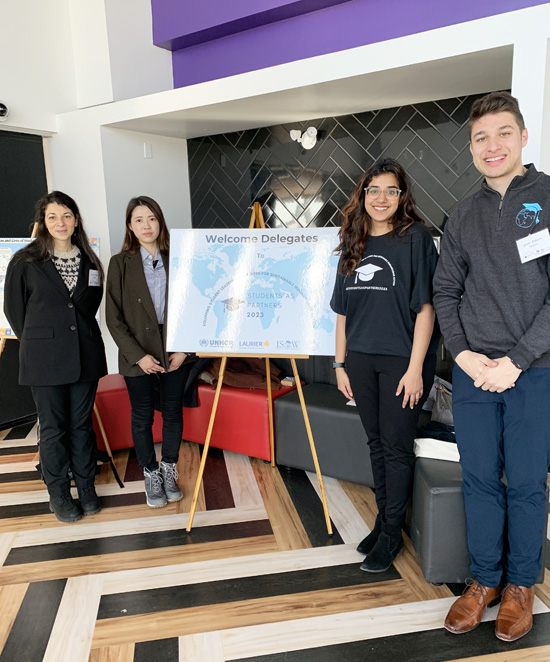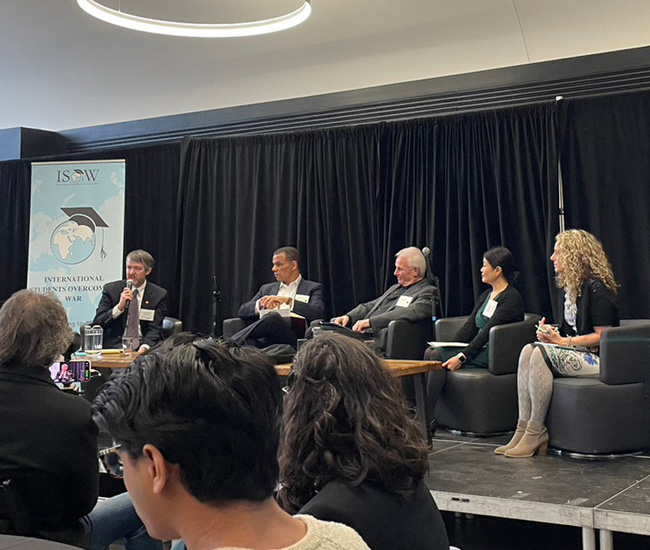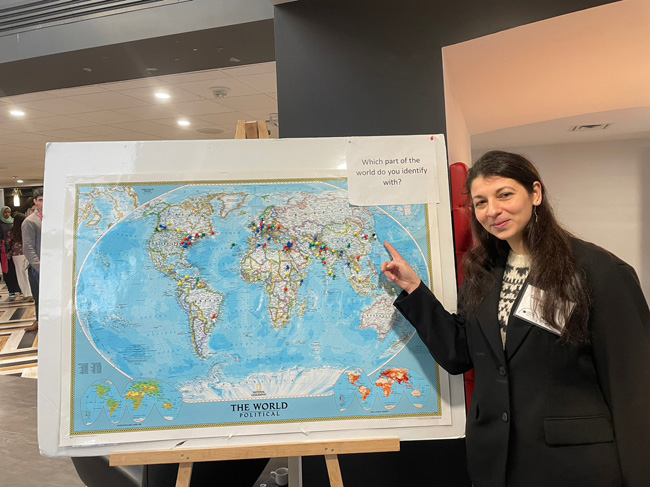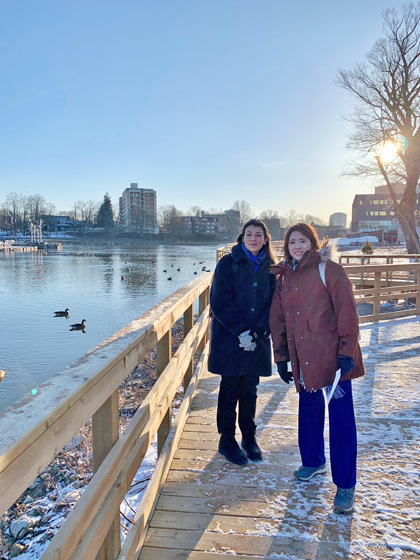JICUF Staff and Students Attend “Students as Partners” Conference in Canada

From March 30 to April 1, Hikari Hirata (third-year undergraduate student at ICU), Suzan Housseini (PhD candidate at Waseda University), and Aki Takada (JICUF Vice President) attended a conference titled “Students as Partners: Equipping Student Leaders as Partners for Sustainable Humanitarian Action” at Wilfrid Laurier University in Waterloo, Canada. The conference was jointly organized by International Students Overcoming War (ISOW) and the United Nations High Commissioner for Refugees (UNHCR) to explore how students can lead in developing sustainable initiatives in partnership with higher education institutions.

Participants included students, university administrators, researchers, NGO staff, and UNHCR officials. Both students who were impacted by war and those who worked on initiatives to support them took part. Participants came from all continents, but our team was the only one representing Japan. Panel discussions and highly interactive workshops focused on topics such as the role of higher education institutions in humanitarian action, the benefits of student leadership, and challenges faced by student leaders and how to overcome them. Aki joined the panel on “Humanizing Higher Education through Civic Engagement” with Dr. Gavin Brockett and David McMurray of Wilfrid Laurier University, Dr. Kyle Farmbry of Guilford College, and Erin Cannan of Bard College. The full program and list of speakers can be viewed here.
Since 2017, JICUF has been deeply involved in humanitarian action. This is the year when JICUF launched the Syrian Scholars Initiative (SSI), a scholarship program for Syrian students to study at ICU. One of the challenges for JICUF has been to mobilize the general student body at ICU to help the Syrian students find footing in Japan. Since SSI was the first scholarship at ICU specifically for displaced students, there were no existing student organizations that supported such students. For this reason, JICUF initially reached out to the students in the Middle East Culture Research Association. A number of them agreed to help SSI students register at the Mitaka City Hall, open bank accounts, sign up for mobile phone service, and purchase bicycles, among other things. In 2022, some of the students in this Association joined other students who were interested in facilitating exchange between Japanese and international students to create a new organization called Culture and Diversity in Japan (CDJ) (Instagram: @cdj_icu). CDJ has since taken over the support for displaced students.

After the Japan-Ukraine University Pathways (JUUP) program was launched in May 2022 to admit Ukrainian students to ICU, CDJ has been supporting Ukrainian students as well. They have so far organized welcome parties for SSI and JUUP students, day trips, ohanami (cherry blossom viewing party), and regular luncheons.
The purpose of JICUF taking part in this conference with student delegates was to learn from institutions in other countries how they mobilize students, enable them to exercise leadership, and sustain student initiatives. Japanese higher education institutions are relatively new to this field, and we felt that there was much to absorb from more experienced institutions. We were also excited to share our own experiences and challenges.

JICUF decided to invite Hikari to the conference because she has been involved in the support for SSI students through the Middle East Culture Research Association, and later became co-leader of CDJ. Hikari wrote a report on her takeaways from the conference, which is available here. Suzan was invited due to her background as a Syrian refugee who graduated from the Japanese Language School Program implemented by the NGO Pathways Japan, as well as her doctorate research on education pathways. Pathways Japan has been JICUF’s partner in both SSI and JUUP, and JICUF now partially funds the Japanese Language School Program as an important bridging program for refugee students to access higher education in Japan. Suzan also co-leads a new inter-collegiate organization called EmPATHy, whose mission is to raise awareness about the struggles of refugees in Japan and to provide support for newcomers and existing refugees in Japan. Suzan’s detailed report on the conference can be found here.
If you are a student interested in joining CDJ or EmPATHy, please contact Hikari and Suzan. You can also email CDJ and EmPATHy.



